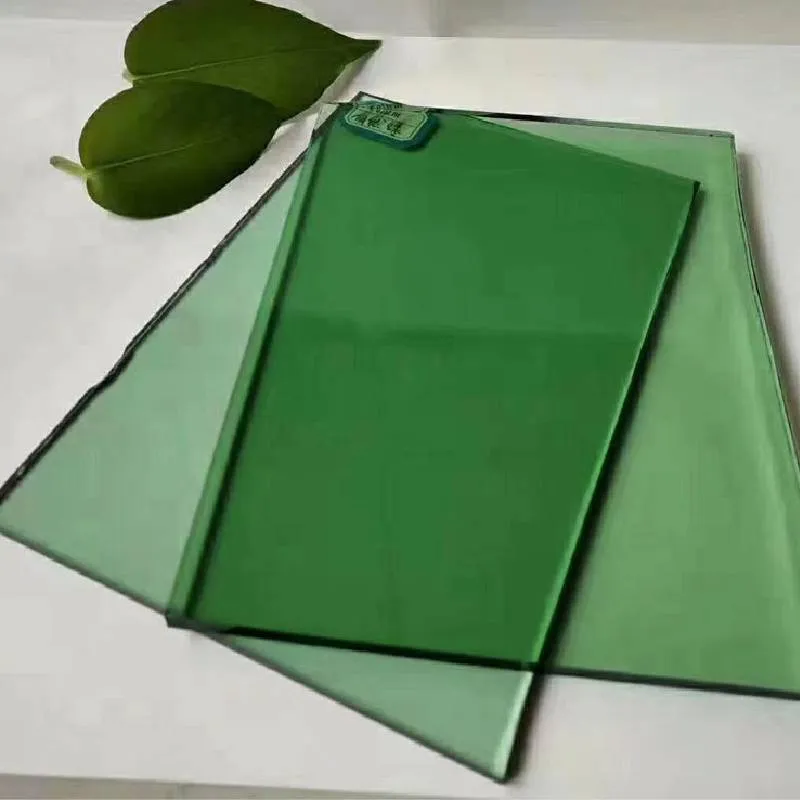The Rising Popularity of Tempered Glass A Look into the Industry and Its Future
In recent years, tempered glass has emerged as a crucial material in various sectors, ranging from architecture to automotive applications. Known for its strength, safety features, and aesthetic appeal, tempered glass is rapidly gaining traction in the global market. This article examines the tempered glass industry, discussing its production processes, applications, and future prospects.
What is Tempered Glass?
Tempered glass, also known as toughened glass, is a type of safety glass that is treated through controlled thermal or chemical processes to increase its strength compared to normal glass. The unique aspect of tempered glass is that it shatters into small, blunt pieces rather than sharp shards, reducing the risk of injury. This property makes it an ideal choice for various applications, particularly where safety is a concern.
Production Processes
The manufacturing of tempered glass involves a meticulous process. The initial step is to cut the glass to the desired size and shape. After cutting, the glass sheets undergo a thorough cleaning process to eliminate any contaminants. The sheets are then heated to approximately 600 degrees Celsius in a tempering furnace, followed by rapid cooling. This process, known as quenching, creates internal stresses that enhance the glass's strength.
Quality control is an integral part of the production process. Manufacturers conduct various tests to assess the integrity and durability of tempered glass. These tests include thermal shock resistance, impact resistance, and visual inspections. The consistency in quality ensures that the final product meets the required safety standards.
Applications of Tempered Glass
Tempered glass is widely used in various sectors due to its desirable properties. In the architectural and construction industries, it is commonly used for windows, facades, shower doors, and balustrades. Architects prefer tempered glass for its sleek appearance and ability to withstand harsh weather conditions.
tempered glass company
In the automotive industry, tempered glass is used for side and rear windows. The safety features of tempered glass are particularly important in cars, as they help protect passengers in the event of an accident. The use of tempered glass in vehicles also contributes to weight reduction, enhancing fuel efficiency.
Moreover, the electronics sector employs tempered glass for screens in mobile devices and televisions. Its scratch-resistant and shatterproof characteristics make it an excellent choice for protecting delicate electronics.
The Market Landscape
The tempered glass market is witnessing significant growth due to increasing demand from various industries. Factors driving this growth include rising awareness of safety and security, rapid urbanization, and technological advancements in production techniques. As more builders and manufacturers recognize the benefits of using tempered glass, its popularity continues to soar.
Moreover, environmental concerns are pushing industries towards sustainable practices. Tempered glass, being recyclable, aligns with eco-friendly initiatives, making it a favored choice for green building projects. The construction of energy-efficient buildings is another area where tempered glass is making a mark, as it can effectively control heat and sunlight penetration while maintaining visibility.
Future Prospects
Looking ahead, the tempered glass industry appears poised for continued growth. Innovations in technology are likely to further enhance the production process and expand the range of applications. For instance, the emergence of smart glass technologies, which allow for dynamic light control, presents new opportunities for tempered glass.
Additionally, as global regulations become stricter regarding construction and automotive safety, the adoption of tempered glass is expected to increase. Manufacturers who can adapt to these changing demands will thrive in the evolving landscape.
In conclusion, the tempered glass industry stands at a pivotal juncture, with safety, aesthetics, and sustainability driving its growth. As more sectors recognize the advantages of tempered glass, its applications will continue to expand, making it an essential material for the future. The combination of innovative production methods and increasing market demand promises a bright outlook for tempered glass companies worldwide.
 Afrikaans
Afrikaans  Albanian
Albanian  Amharic
Amharic  Arabic
Arabic  Armenian
Armenian  Azerbaijani
Azerbaijani  Basque
Basque  Belarusian
Belarusian  Bengali
Bengali  Bosnian
Bosnian  Bulgarian
Bulgarian  Catalan
Catalan  Cebuano
Cebuano  Corsican
Corsican  Croatian
Croatian  Czech
Czech  Danish
Danish  Dutch
Dutch  English
English  Esperanto
Esperanto  Estonian
Estonian  Finnish
Finnish  French
French  Frisian
Frisian  Galician
Galician  Georgian
Georgian  German
German  Greek
Greek  Gujarati
Gujarati  Haitian Creole
Haitian Creole  hausa
hausa  hawaiian
hawaiian  Hebrew
Hebrew  Hindi
Hindi  Miao
Miao  Hungarian
Hungarian  Icelandic
Icelandic  igbo
igbo  Indonesian
Indonesian  irish
irish  Italian
Italian  Japanese
Japanese  Javanese
Javanese  Kannada
Kannada  kazakh
kazakh  Khmer
Khmer  Rwandese
Rwandese  Korean
Korean  Kurdish
Kurdish  Kyrgyz
Kyrgyz  Lao
Lao  Latin
Latin  Latvian
Latvian  Lithuanian
Lithuanian  Luxembourgish
Luxembourgish  Macedonian
Macedonian  Malgashi
Malgashi  Malay
Malay  Malayalam
Malayalam  Maltese
Maltese  Maori
Maori  Marathi
Marathi  Mongolian
Mongolian  Myanmar
Myanmar  Nepali
Nepali  Norwegian
Norwegian  Norwegian
Norwegian  Occitan
Occitan  Pashto
Pashto  Persian
Persian  Polish
Polish  Portuguese
Portuguese  Punjabi
Punjabi  Romanian
Romanian  Russian
Russian  Samoan
Samoan  Scottish Gaelic
Scottish Gaelic  Serbian
Serbian  Sesotho
Sesotho  Shona
Shona  Sindhi
Sindhi  Sinhala
Sinhala  Slovak
Slovak  Slovenian
Slovenian  Somali
Somali  Spanish
Spanish  Sundanese
Sundanese  Swahili
Swahili  Swedish
Swedish  Tagalog
Tagalog  Tajik
Tajik  Tamil
Tamil  Tatar
Tatar  Telugu
Telugu  Thai
Thai  Turkish
Turkish  Turkmen
Turkmen  Ukrainian
Ukrainian  Urdu
Urdu  Uighur
Uighur  Uzbek
Uzbek  Vietnamese
Vietnamese  Welsh
Welsh  Bantu
Bantu  Yiddish
Yiddish  Yoruba
Yoruba  Zulu
Zulu 

